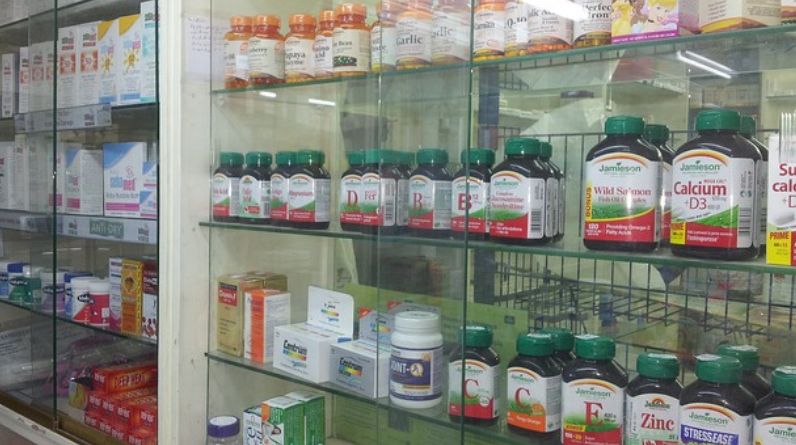
Enhancing Strength and Endurance
Athletic performance relies on a combination of factors, including training, nutrition, and recovery. While a well-rounded diet is crucial for athletes, certain supplements can provide additional support in optimizing strength, endurance, and overall athletic performance. These supplements are specifically formulated to enhance athletic performance, improve recovery, and help athletes reach their peak potential. In this comprehensive guide, we will explore the world of supplements for athletic performance, their benefits, and how they can be incorporated into an athlete’s regimen.
Introduction
Athletes and fitness enthusiasts are constantly seeking ways to maximize their performance and gain a competitive edge. Supplements for athletic performance offer targeted support to help athletes improve their strength, endurance, and overall physical performance. These supplements are designed to provide the body with specific nutrients, such as amino acids, vitamins, minerals, and herbal extracts, which are essential for athletic success. By incorporating the right supplements into their routine, athletes can optimize their training, enhance recovery, and achieve their performance goals.
Understanding Supplements for Athletic Performance
Supplements for athletic performance are formulated to address the unique needs of athletes and individuals engaged in intense physical activity. They aim to enhance various aspects of athletic performance, including strength, power, endurance, speed, and recovery. These supplements can come in various forms, including powders, capsules, tablets, and liquids. They may contain individual nutrients, such as creatine or branched-chain amino acids (BCAAs), or proprietary blends of multiple ingredients that work synergistically to support athletic performance.
Key Supplements for Athletic Performance
Several supplements have been widely studied for their potential benefits in improving athletic performance. It’s important to note that individual responses may vary, and athletes should consult with a healthcare professional or sports nutritionist before incorporating any new supplements. Here are some key supplements for athletic performance:
1. Creatine
Creatine is a naturally occurring chemical that can be found in small quantities in meat and fish. It is involved in energy production and has been extensively studied for its benefits in enhancing strength, power, and muscle mass. Creatine supplementation can improve high-intensity exercise performance, particularly in activities that involve short, intense bursts of energy.
2. Branched-Chain Amino Acids (BCAAs)
BCAAs, including leucine, isoleucine, and valine, are essential amino acids that play a vital role in muscle protein synthesis and recovery. They are particularly important for athletes engaged in endurance exercise or resistance training. BCAA supplementation can help reduce muscle damage, enhance recovery, and delay fatigue during prolonged exercise.
3. Beta-Alanine
Beta-alanine is an amino acid that combines with histidine in the body to form carnosine, a compound involved in buffering acidity in the muscles. Supplementation with beta-alanine has been shown to increase muscle carnosine levels, which can improve high-intensity exercise performance and delay muscle fatigue.
4. Caffeine
Caffeine is a widely consumed stimulant that can enhance athletic performance. It has been shown to increase alertness, reduce perceived exertion, and improve endurance exercise performance. Caffeine can also help mobilize fatty acids, potentially sparing muscle glycogen and enhancing endurance.
5. Nitric Oxide Boosters
Nitric oxide (NO) is a signaling molecule that plays a role in vasodilation, or the widening of blood vessels. Supplements that boost nitric oxide levels, such as arginine and citrulline, can improve blood flow and oxygen delivery to the muscles, potentially enhancing endurance and exercise performance.
6. Omega-3 Fatty Acids
Omega-3 fatty acids, including eicosapentaenoic acid (EPA) and docosahexaenoic acid (DHA), have been shown to have anti-inflammatory effects and support cardiovascular health. Omega-3 supplementation may aid in reducing exercise-induced inflammation and promoting overall well-being.
Incorporating Supplements for Athletic Performance
When incorporating supplements for athletic performance, athletes should keep the following guidelines in mind:
1. Individualized Approach
Athletes have unique nutritional needs based on their sport, training volume, and individual physiology. It’s crucial to seek guidance from a qualified healthcare professional or sports nutritionist who can assess individual requirements and recommend suitable supplements based on specific goals and circumstances.
2. Quality and Safety
Choose supplements from reputable brands that undergo rigorous testing for quality, purity, and safety. Look for third-party certifications, such as NSF Certified for Sport or Informed-Sport, which ensure the products are free from contaminants and substances prohibited in sport.
3. Timing and Dosage
Follow the manufacturer’s or a healthcare professional’s recommended dosing guidelines. Some supplements are best taken pre-workout, while others are more effective post-workout or at specific times during the day. Timing and dosage can impact the efficacy of the supplement, so it’s important to adhere tothe recommended guidelines.
4. Consider Whole Foods First
Supplements should never replace a well-balanced diet based on whole foods. Athletes should prioritize consuming nutrient-dense meals that provide a wide range of vitamins, minerals, and macronutrients. Supplements should be viewed as an addition to a healthy diet, filling in specific nutrient gaps or enhancing targeted aspects of athletic performance.
5. Monitor and Adjust
Athletes should closely monitor their response to supplements and make adjustments as needed. Individual responses may vary because not all supplements operate the same way for everyone. If an athlete experiences any adverse effects or does not notice the desired benefits, it’s important to reassess and consult with a healthcare professional or sports nutritionist for alternative options.
FREQUENTLY ASKED QUESTIONS
1. Are supplements for athletic performance safe?
When used correctly and in accordance with recommended guidelines, supplements for athletic performance are generally safe. However, it’s crucial to choose reputable brands, follow dosage instructions, and consider individual needs and circumstances. Athletes should be aware of potential interactions with medications or pre-existing health conditions and consult with a healthcare professional before starting any new supplements.
2. Can supplements for athletic performance replace training and proper nutrition?
Supplements alone cannot replace the foundation of training and proper nutrition. They are intended to complement a well-rounded regimen that includes regular exercise and a balanced diet. Athletes should prioritize training programs tailored to their specific sport or goals, along with a nutrition plan that provides adequate macronutrients, vitamins, and minerals.
3. Are there any side effects of using supplements for athletic performance?
While most supplements for athletic performance are safe when used appropriately, they can have potential side effects. These may include gastrointestinal issues, allergic reactions, interactions with medications, or nutrient imbalances. Athletes should be mindful of any adverse effects and discontinue use if necessary. Consulting with a healthcare professional or sports nutritionist can help minimize potential risks.
4. Can I combine multiple supplements for athletic performance?
Combining multiple supplements can be done, but it should be approached with caution. Athletes should consider their individual needs, goals, and potential interactions between supplements. Consulting with a healthcare professional or sports nutritionist is recommended to ensure a safe and effective combination of supplements.
5. Are there any natural alternatives to supplements for athletic performance?
While supplements can offer targeted support, athletes can also optimize their athletic performance through a well-rounded diet that includes nutrient-dense whole foods. Prioritizing a balanced intake of proteins, carbohydrates, healthy fats, vitamins, and minerals can provide many of the essential nutrients required for athletic performance. Athletes can work with a healthcare professional or sports nutritionist to develop a personalized nutrition plan that suits their specific needs.
6. How can supplements enhance athletic performance?
Supplements can enhance athletic performance by providing nutrients that support energy production, muscle growth and repair, endurance, and recovery. They can help optimize nutrient intake, fill potential nutrient gaps, and provide specific compounds that benefit athletic performance, such as amino acids, creatine, caffeine, and beta-alanine.
7. What are some popular supplements for enhancing strength and endurance?
There are several popular supplements used to enhance strength and endurance. Some common examples include:
Creatine: Known for its ability to increase muscle strength, power, and overall athletic performance.
Branched-chain amino acids (BCAAs): These amino acids (leucine, isoleucine, and valine) can support muscle growth, reduce muscle fatigue, and enhance exercise recovery.
Beta-alanine: Helps improve endurance by buffering lactic acid buildup in muscles, delaying fatigue, and improving exercise capacity.
Caffeine: A natural stimulant that can enhance energy, focus, and endurance during workouts.
Nitric oxide boosters: Supplements containing ingredients like arginine and citrulline can enhance blood flow, leading to improved endurance and performance.
Beetroot juice or powder: Rich in nitrates, beetroot can improve endurance by enhancing oxygen utilization and reducing fatigue.
8. How do I determine which supplements are right for me and my specific athletic goals?
Determining the right supplements for your athletic goals depends on factors such as your training regimen, specific needs, dietary habits, and personal preferences. It’s important to consider your goals and consult with a sports nutritionist, registered dietitian, or healthcare professional who can assess your individual needs and provide personalized recommendations based on your training program, dietary intake, and any underlying health considerations.
9. Can I rely solely on supplements for athletic performance, or should I focus on a well-balanced diet?
While supplements can be beneficial for enhancing athletic performance, they should not replace a well-balanced diet. A nutrient-rich diet that includes whole foods, adequate protein, carbohydrates, healthy fats, and micronutrients is essential for overall health and optimal athletic performance. Supplements should be used to complement a healthy diet and fill any specific nutrient gaps or requirements that cannot be met through food alone.
10. Do supplements for athletic performance undergo any testing for quality and safety?
Reputable supplement brands often undergo testing to ensure product quality and safety. Look for supplements that are third-party tested, as this provides an extra level of assurance regarding quality control, ingredient accuracy, and absence of contaminants. Trusted certifications, such as NSF Certified for Sport, indicate that a product has met rigorous standards for purity and quality. Reading product labels, researching reputable brands, and consulting with healthcare professionals can help you make informed choices about supplement quality and safety.
Remember, supplements for athletic performance can support your training and goals, but they should be used in conjunction with a well-balanced diet, proper hydration, restful sleep, and an appropriate training program. Individual needs and responses to supplements may vary, so it’s essential to personalize your approach and consult with professionals for tailored guidance.





